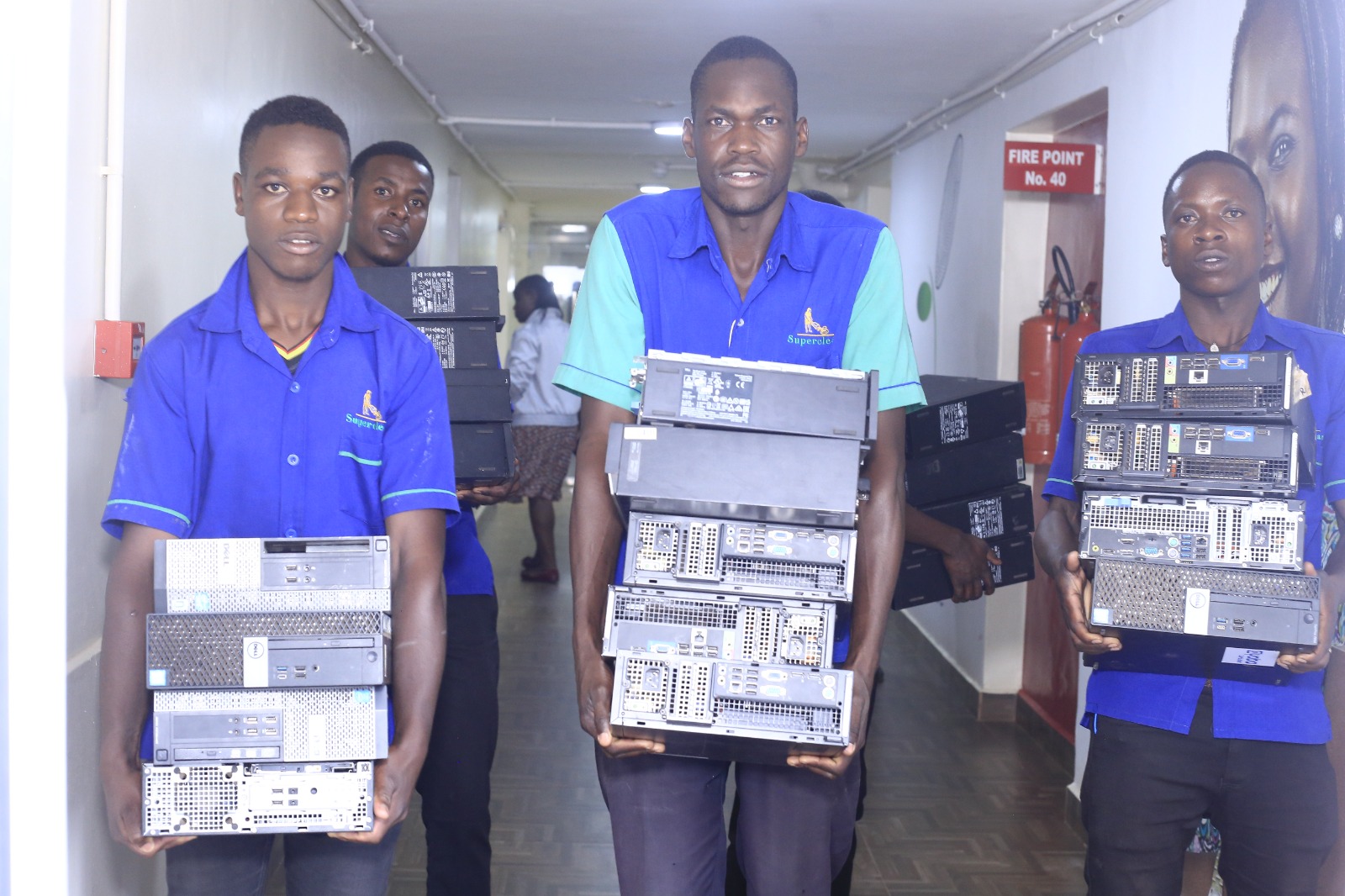MTN, Makerere partner on electronic waste management
Mar 22, 2023
Reports show that an estimated 50 million tons of e-waste were generated globally in 2019. This is equivalent to throwing out 1,000 laptops every single second.

Used computers loaded onto a truck for transportation to Makerere University for recycling. (Courtesy photo)

Ali Twaha
Journalist @New Vision
Telecom firm MTN and Makerere University College of Engineering Design Art and Technology (CEDAT) have announced a partnership where the duo will work closely in the disposal and recycling of electronic waste.
Electronic waste or e-waste is an informal term referring to electronics that are at or near the end of their useful life and are due for disposal.
Uganda’s population is increasingly getting connected to the world of digital information via mobile phones and the internet services as sales of the products are increasing.
However, there is a huge gap between recycling and collection facilities of electronic waste that is being generated.
Reports show that an estimated 50 million tons of e-waste were generated globally in 2019. This is equivalent to throwing out 1,000 laptops every single second.

A study done in 2018 reflected an estimate of 17,000 tons of e-waste being generated in Uganda. (Courtesy photo)
“A study done in 2018 reflected an estimate of 17,000 tons of e-waste being generated here,” Emmanuel Kakooza, ICT officer at the ICT ministry said.
The government owns the highest number of ICT equipment in the country followed by Non- Governmental Organisations (NGOs) at about 75%, large enterprises at about 20%, private households, Small and Medium Enterprises (SMEs) and others at about 5%.
The MTN and Makerere partnership wants the e- waste products repurposed for a new use to conserve the environment and the population.
“We are looking forward to growing this partnership for the betterment of our country and achievement of Environmental, Social and Governance (ESGs),” Eng. Dorothy Okello, the Dean, School of Engineering at Makerere, said.
Individual government institutions do not dispose of obsolete ICT equipment in a well-planned and managed manner. The same applies to the private sector and households.
MTN donated 390 electronic items worth about sh20m to be revamped and donated to rural secondary schools to enhance ICT access and literacy.
“We recognize the importance of conserving our environment and as such have mainstreamed eco-responsibility as a key priority in our ESG commitments so we can create shared value in the communities we operate in,” Ali Monzer, chief technology information officer at MTN.
Uganda developed an e-waste Management Policy to guide, promote, and ensure the safe management of e-waste in Uganda while contributing to reduction of environmental degradation.

No Comment